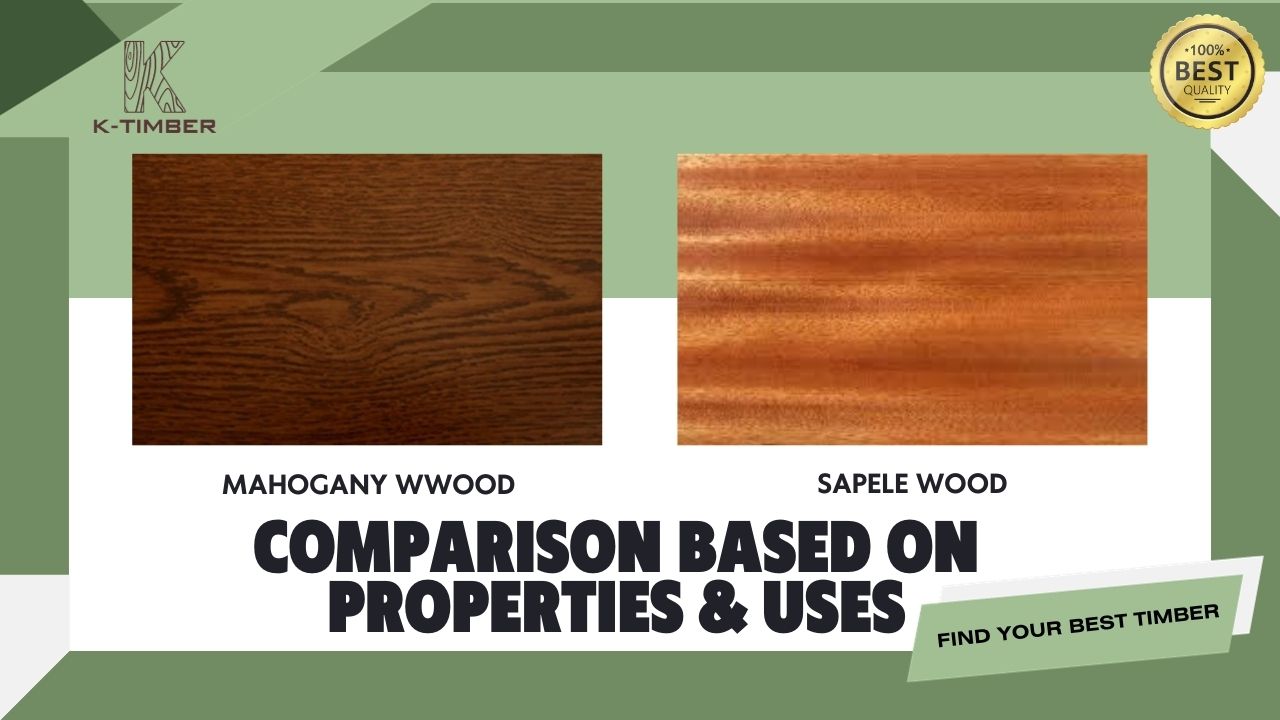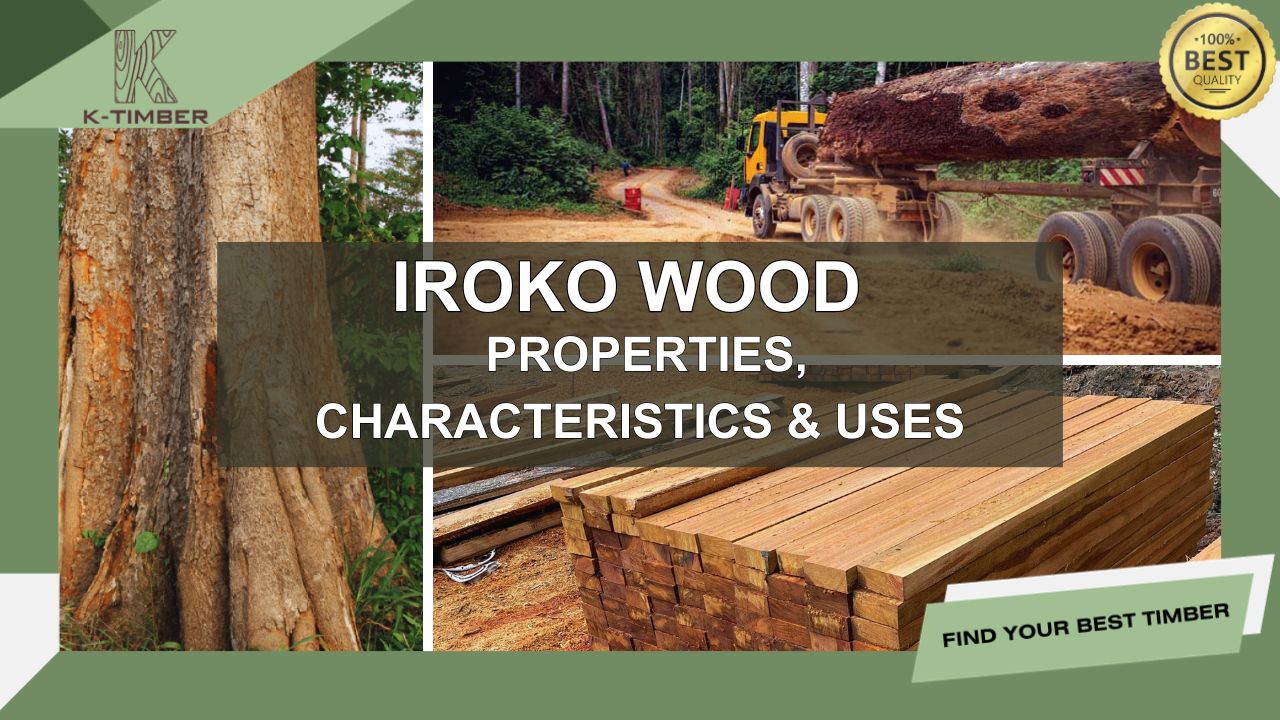African blackwood, scientifically known as Dalbergia melanoxylon, is a symbol of luxury and exclusivity in the world of precious wood.
According to Nikkei Asia, the hard, fine-grained African blackwood found in Tanzania is one of the most expensive woods in the world. A single log can cost around $9,000; The price of processed wood in 2016 was listed at 13,000 USD/m3.
But what exactly has elevated this particular type of wood to global leadership? Let’s dive into the unique characteristics and compelling reasons behind the unparalleled value of African Blackwood with K-TIMBER.”
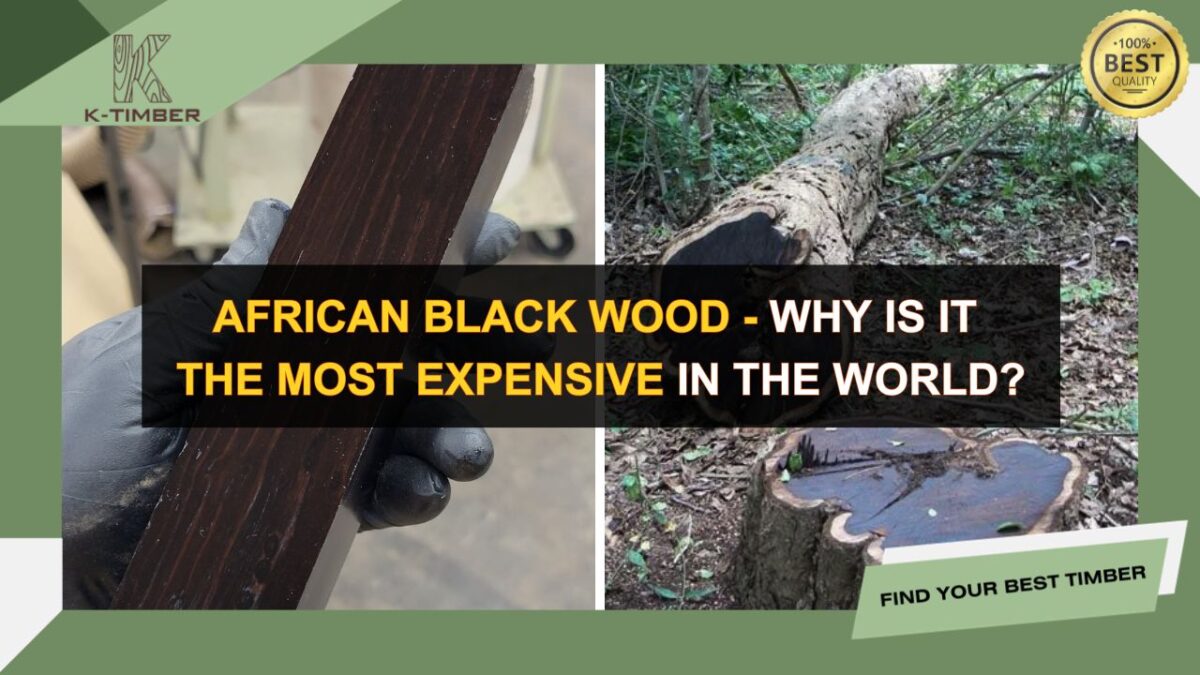
Table of Contents
What is African blackwood?
General introduction
- African blackwood, also known by its scientific name “Dalbergia melanoxylon”, is one of the rarest and most valuable woods on the market. Characterized by its jet black color and exceptional hardness, this wood is popular for its aesthetic beauty.
- The origin of African blackwood comes primarily from subtropical dry forests across the African continent, especially in countries such as Tanzania, Mozambique, and Zimbabwe. The blackwood tree grows slowly, often taking decades to reach a harvestable size, adding to its value and rarity.
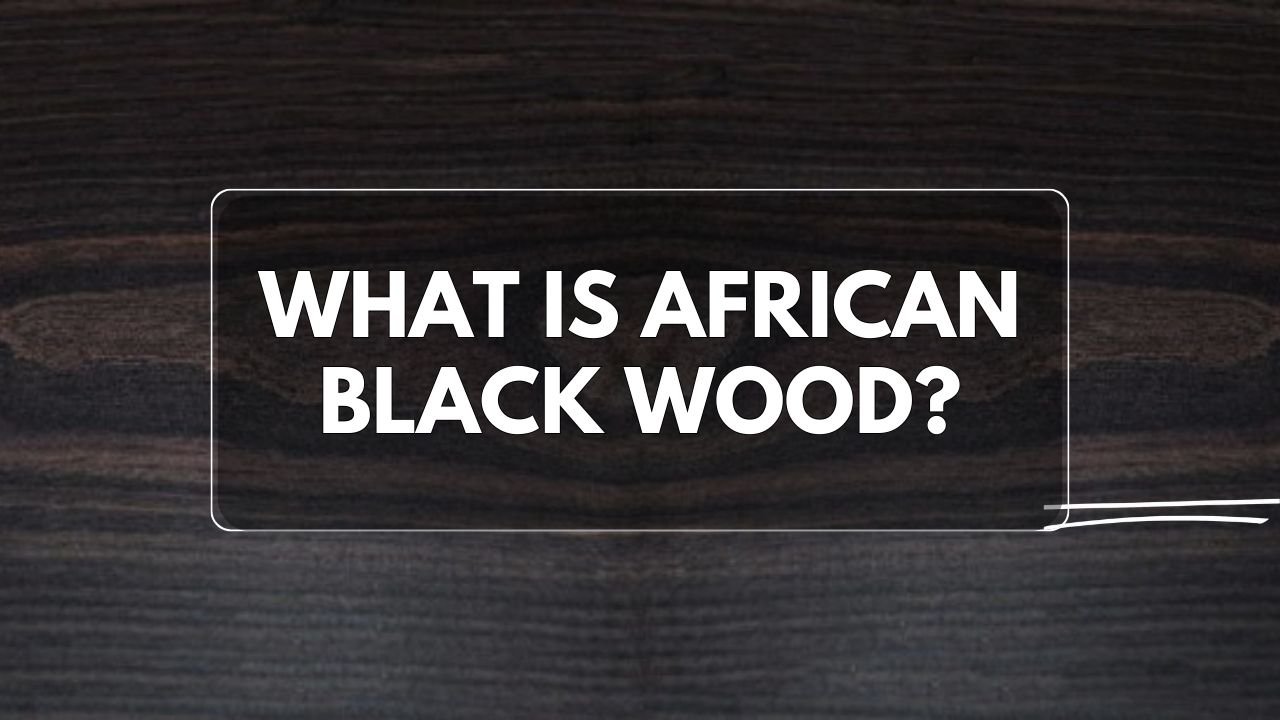
Morphological and structural characteristics
African blackwood stands out with its characteristic black color, which can be mixed with brown or gray. The wood structure is tight and uniform, with high hardness. According to the Janka scale, blackwood has a hardness of about 3,220 lbf (pounds-force), making it one of the hardest woods in the world.
Physical and chemical properties
- Blackwood has a high specific gravity, about 1.2 g/cm³, which causes it to sink in water. Good dimensional stability, little shrinkage when changing humidity. Wood also contains high tannin, which helps naturally resist termites and mold.
- Compared to oak (specific gravity about 0.75 g/cm³) or pine (specific gravity about 0.35 g/cm³), African blackwood is significantly heavier and harder. This not only increases the value of use but also affects the price and availability in the market.
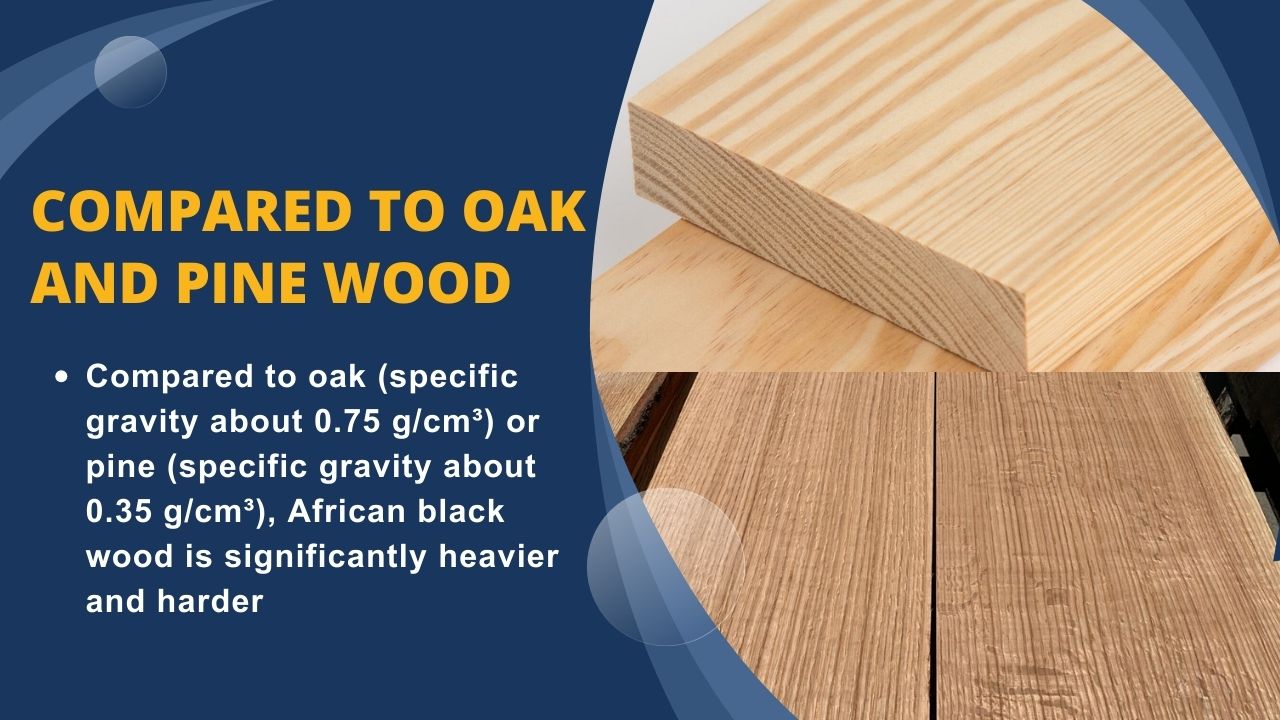
Reasons why African Blackwood is Expensive
African black wood is a type of wood sought after by many large companies because of its irreplaceable value. This is the rarest type of wood in the world: It takes 200 years to mature, is difficult to manipulate, costs more than 13.000 USD/m3 but the supply is always out of stock.
Growth and harvest process
- Long growth period: African blackwood, or Dalbergia melanoxylon, takes about 60 to 100 years to reach a harvestable size. This is notable when compared to other types of wood such as pine or oak, which typically only take about 20-30 years to develop.
- Special growing conditions: African blackwood trees are adapted to dry conditions and often grow in areas with low rainfall. This limits their distribution in nature, making finding and exploiting them more difficult.
- Impact of climate change: Climate change also affects the growth of blackwood. Changes in rain and temperature can reduce the ability of plants to grow in their natural environment.

Difficulties in exploitation and processing
- Conservation issues: Countries such as Tanzania and Mozambique, where blackwood is popular, have imposed export restrictions. For example, Tanzania reduced blackwood exports from 960 tons in 2004 to about 50 tons in 2016.
- Forest management issues: CITES (Convention on International Trade in Endangered Species of Wild Fauna and Flora) has listed African blackwood in Appendix II, restricting international trade.
- Cost and processing technology: Due to its high hardness (3,220 lbf on the Janka scale), the cost of processing blackwood is higher than other types of wood because it requires specialized machinery and high technology.
- Production costs: The cost of producing furniture from blackwood can be double or triple that of regular wood, depending on the complexity of the product.
Market demand and uniqueness
- Popular among the upper class: African blackwood is considered a symbol of luxury. A blackwood furniture product can cost from several thousand to tens of thousands of dollars, depending on size and complexity. In the musical instrument market, a guitar or piano using blackwood can cost between $5,000 and $10,000, much higher than instruments made from regular wood.
- Artistic and aesthetic properties: African blackwood is prized for its unique color and texture. This increases aesthetic value and attracts the interest of designers and artisans. Works of art and handicrafts made from blackwood not only have value for use but are also objects of collection and investment. A blackwood sculpture can sell for anywhere from a few hundred to a few thousand dollars.

Application and Use Value of African blackwood
In furniture, decoration, musical instruments
- Good quality “A” grade African blackwood fetches high prices in the commercial wood market. Wood is used primarily for its workability, density, dimensional stability, and moisture resistance. These properties are especially valued when used in woodwind instruments, mainly clarinets, oboes, transverse flutes, piccolos, recorders, Highland pipes and Northumbrian pipes.
- Some anecdotal sources report that the Deering Banjo Company uses African blackwood for the tone rings in their John Hartford model banjos. Because this type of wood is heavier than copper or brass, it also helps improve the tone when used.
- African blackwood is used to create luxury furniture such as tables, chairs, cabinets, and beds. The combination of durability and natural beauty of wood increases the aesthetic and unique value of each product.

Investment value and collection
- African blackwood, due to its scarcity and uniqueness, often increases in value over time. Products made from this wood not only maintain their prices but also have the ability to increase in price, especially when the supply becomes more limited.
- For those investing in furniture or art made from blackwood, this can be considered a long-term investment. Blackwood products not only have useful value but are also assets whose value increases over time.
- Works of art, handicrafts, and musical instruments made from African blackwood are sought after by collectors. Their uniqueness and sophistication increase their collectible value.
- Works from blackwood often appear in art auctions and can achieve high prices. For example, a blackwood sculpture can sell for tens of thousands of dollars, depending on the artist and the complexity of the piece.
The 5 most expensive types of wood in the world besides African blackwood:
Lignum Vitae Wood (Guiacum Iron Wood)
Known as “Iron Wood”, Lignum Vitae is one of the hardest and heaviest woods. It is used in industrial applications and in making fine arts.
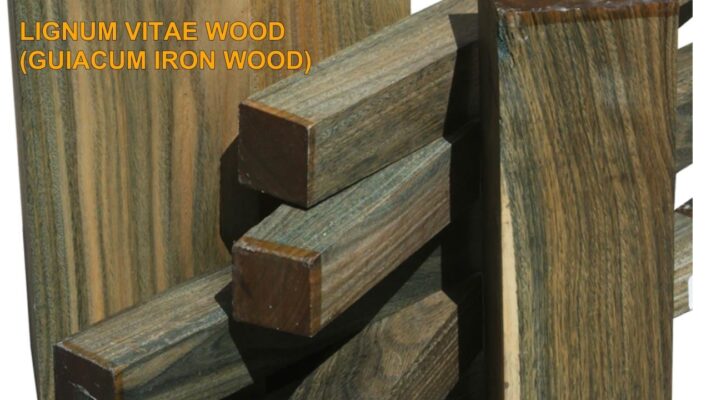
- Hardness: Approximately 4,500 lbf (pounds-force) on the Janka scale.
- Applications: Heavy industry, fine arts, and making gears for machines.
- Characteristics: One of the hardest and heaviest woods in the world.
Agarwood
Agarwood is famous for its characteristic fragrance, used in the production of perfumes and essential oils. This wood becomes rare due to its rare natural fragrance creation process.
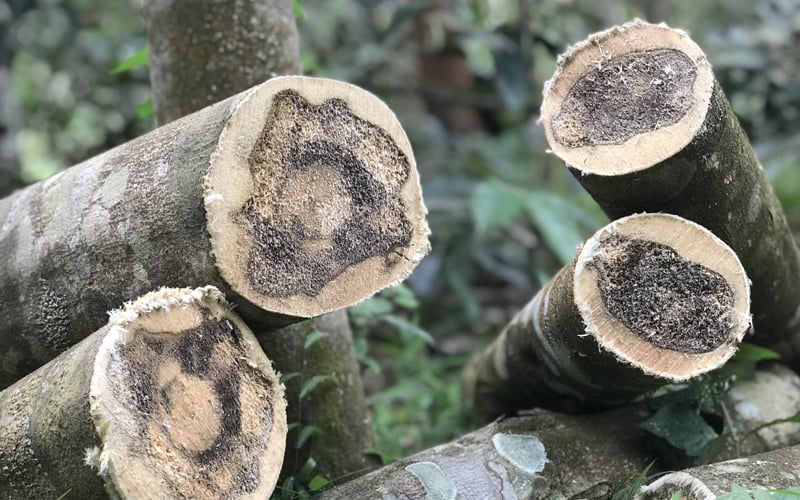
- Value: Can be up to thousands of dollars per kilogram, depending on quality and scent.
- Application: Production of perfumes, essential oils, and in religious ceremonies.
- Characteristics: Rich and unique fragrance.
Ebony Wood
Ebony wood, with its deep black color and luster, is a popular choice for high-end furniture, sculpture and musical instruments. Its hardness and durability increase its use value.
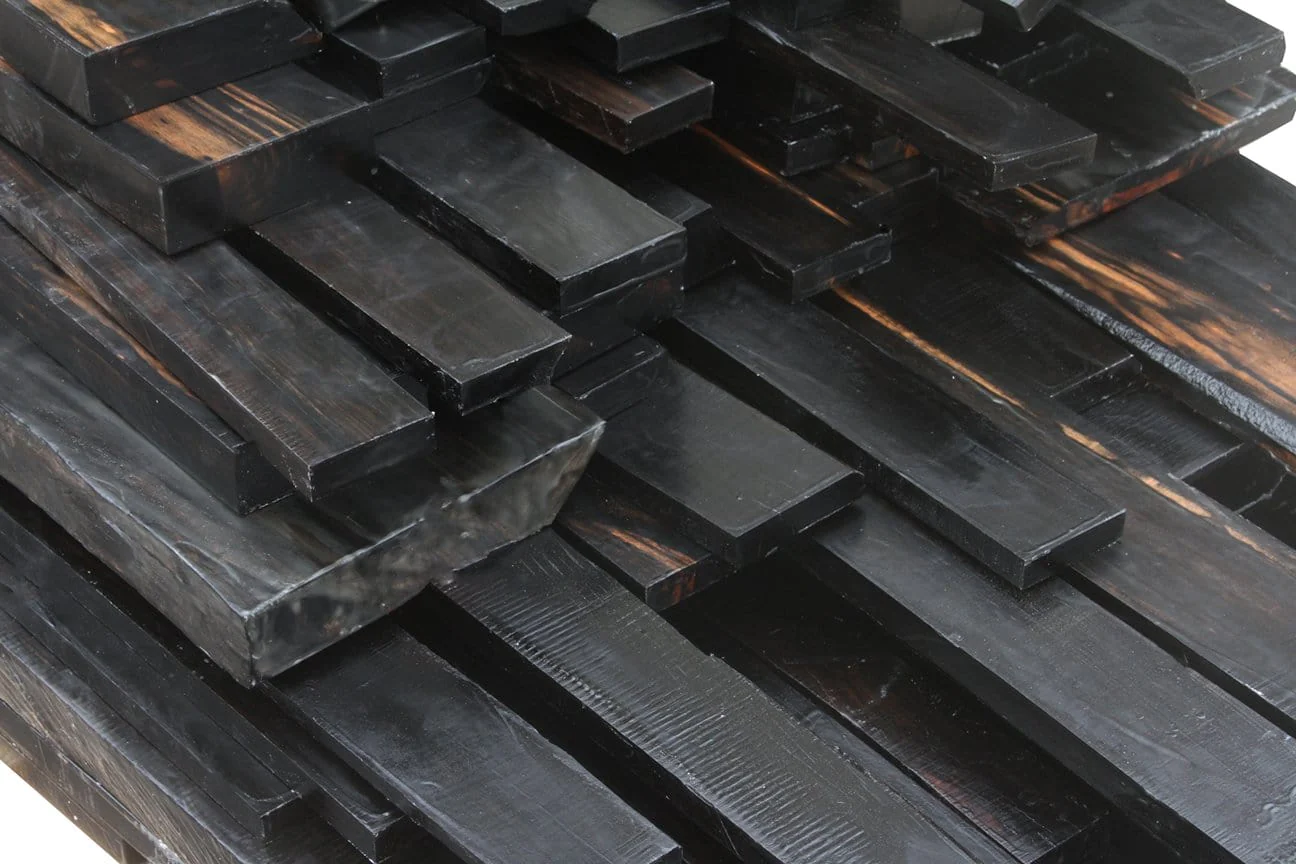
- Hardness: Approximately 3,220 lbf on the Janka scale.
- Applications: High-end furniture, sculpture, and musical instruments.
- Characteristics: Deep black color, glossy and highly durable.
Sandalwood
Sandalwood is known for its pleasant scent and is often used in the production of perfumes and cosmetics. It is also highly valued in religious and traditional ceremonies.
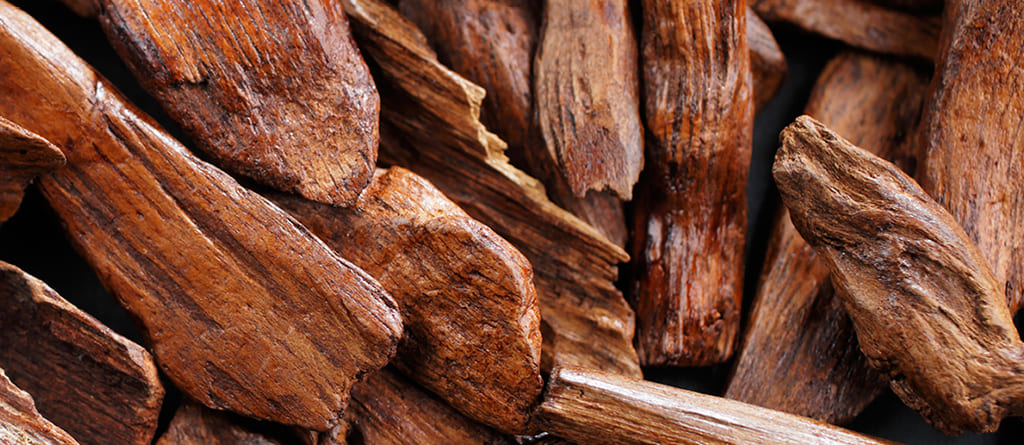
- Value: Expensive due to high demand and limited supply.
- Application: Production of perfumes, cosmetics, and in religious ceremonies.
- Characteristics: Pleasant and long-lasting scent.
Bubinga Wood (Kevazingo Wood)
Bubinga is a type of wood famous for its natural beauty, often used in making high-end furniture and musical instruments. Its color and texture make it a popular choice in interior design.
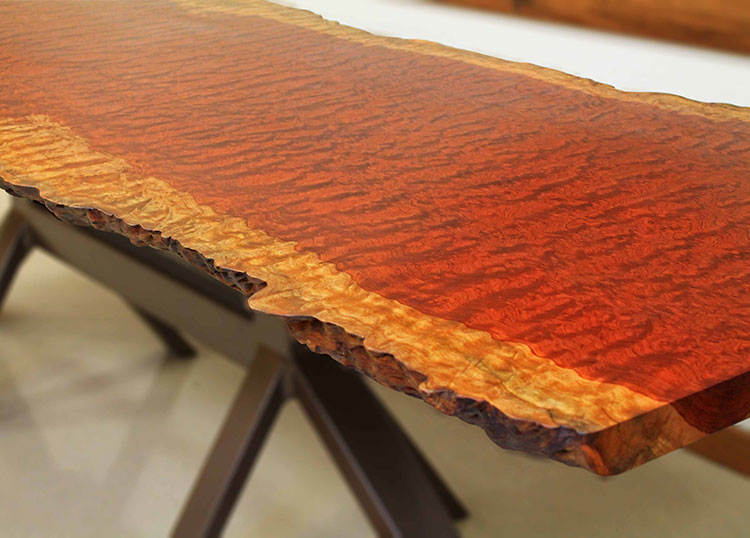
- Hardness: Approximately 2,630 lbf on the Janka scale.
- Applications: High-end furniture, musical instruments, and interior design.
- Features: Beautiful colors and textures, popular in interior design.
May so you like: The best times to buy African wood during the year
Above are the reasons why African blackwood is the most expensive wood in the world. It is a testament to the unique combination of rarity, durability and aesthetics. Its slow growth rate and specific environmental requirements contribute to its scarcity, while its exceptional hardiness and deep, rich colors make it highly sought after in luxury furniture, musical instruments, and furniture. tools and works of art. However, this high demand also emphasizes the need for sustainable management and conservation efforts to protect this precious natural resource for future generations. African blackwood is more than just a type of wood; it is a symbol of natural beauty and the importance of ecological responsibility.




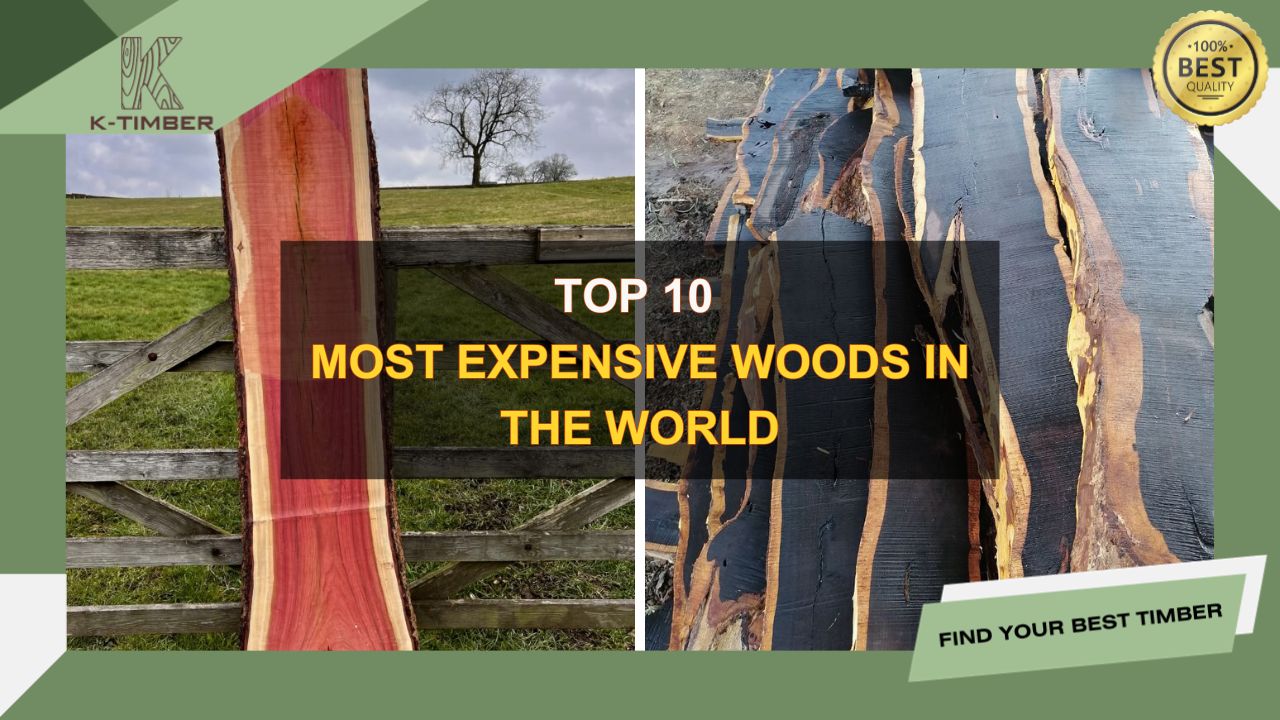
![[K-Timber] Blog Post Boder-3](https://k-timbers.com/wp-content/uploads/2024/06/K-Timber-Blog-Post-Boder-3.png)
